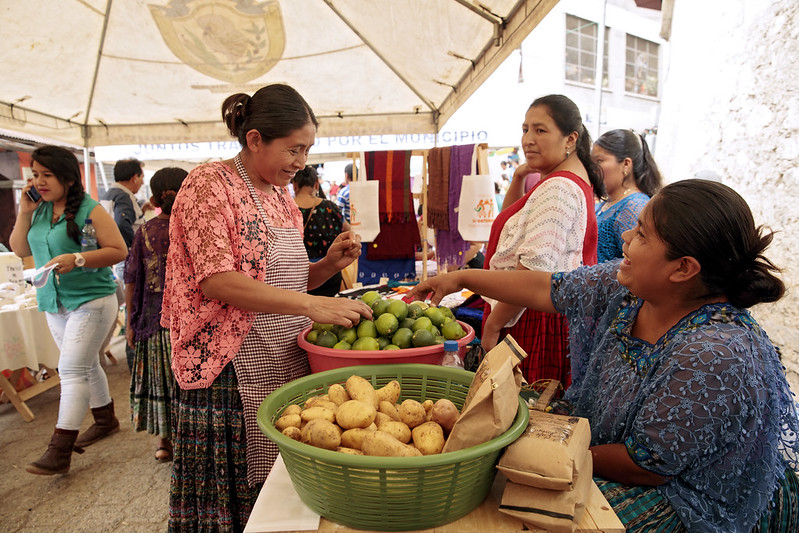The Mujerprospera Challenge in Central America

The United States Agency for International Development (USAID) introduced MujerProspera (WomanProsper) Challenge on January 13, 2022. The challenge encourages applicants to propose innovative ways to promote gender equality in Guatemala, El Salvador and Honduras. Overall, this project addresses the relationship between gender and poverty and forms part of a long list of ongoing USAID projects that bolster the opportunities of the world’s impoverished.
Gender and Poverty
Guatemala, El Salvador and Honduras noted high levels of extreme poverty even prior to the COVID-19 pandemic, although the spread of the virus prompted rises in poverty levels throughout the region. According to the Center for Strategic and Management Studies, the Northern Triangle, of which Guatemala, El Salvador and Honduras form part, stands as “one of the [most impoverished] regions in the Western Hemisphere.” Migration patterns and environmental disasters also exacerbate the struggles of those living below the poverty line. As of August 12, 2021, USAID estimated that 8.3 million citizens across these three countries require humanitarian aid.
These facts do not exist in isolation of gender inequality. In fact, Guatemala, El Salvador and Honduras stand out as nations where gender and poverty intertwine. Data from the Gender Equality Observatory shows that extremely high percentages of women in Guatemala (51%), El Salvador (39.4%) and Honduras (43.5%) had no “incomes of their own.” All of these rates are higher than the regional average, which stood at 27.8% as of 2019.
Evidence proves that changing these statistics leads to positive change. A World Bank report on women’s role in Latin American and the Caribbean (LAC) economies notes that “an increase in the number of women in paid work between 2000 and 2010 accounted for around 30% of the overall reduction in poverty and income inequality.” Women in these countries receive fewer opportunities and face more challenges than many men in the same social and economic situation. As such, U.S. efforts to combat global poverty must also combat global gender inequality.
Developments in Central American Women’s Rights
Local activists, politicians and international organizations in Guatemala, El Salvador and Honduras continue to make significant progress in women’s rights. One group, the IM-Defensoras, has launched several campaigns throughout Guatemala, El Salvador and Honduras since 2016 to protect women and provide a cooperative network for female humanitarian activists.
In addition, the Regional Office of U.N. Women for LAC launched the Women, Local economy and Territories (WLEaT) program in 2018 with a specific focus on the Northern Triangle countries. WLEaT “contributes to the creation of new and better employment and income opportunities for women entrepreneurs and businesswomen” by strengthening their access to business services and promoting inclusive financial practices in the private sector. The program, therefore, contributes to multiple Sustainable Development Goals (SDGs), such as ending global poverty (SDG 1), combating gender inequality (SDG 5) and promoting “decent work” and economic expansion (SDG 8).
In response to the COVID-19 pandemic, in June 2021, USAID and several partner organizations provided resources for women in need of humanitarian aid. This includes a total of $60 million spread across the three Northern Triangle countries to encourage employment, train Indigenous women for midwife careers, prevent gender-based violence and more. Most recently, on January 13, 2022, USAID introduced another important program: the MujerProspera Challenge.
What is the MujerProspera Challenge?
The MujerProspera Challenge stands as one of many U.S. programs pushing against multiple levels of inequality. The program’s official request for applications documents states that the project seeks to “advance women’s economic security, employment, and/or entrepreneurship” in Guatemala, El Salvador and Honduras.
The lofty document lists different types of solutions that draw from training initiatives in the private sector to the implementation of gender-inclusive legislation. However, overall, MujerProspera provides another way for women in these countries to protect their agency and independence.
Applicants can win funding awards ranging from $150,000 to $500,000 in value. Through these awards, applicants can fund necessary initiatives or solutions that acknowledge the relationship between gender and poverty and promote women’s involvement in the economic sector. The MujerProspera Challenge thus empowers women, local activists, entrepreneurs and organizations to develop solutions to improve situations of gender inequality and poverty in their home countries.
– Lauren Sung
Photo: Flickr
